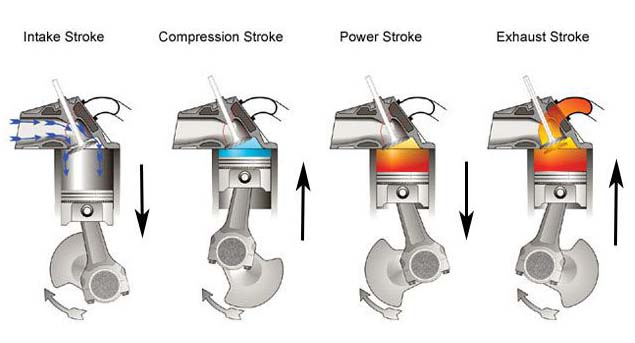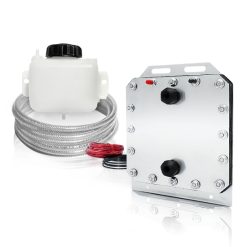No products in the cart.
What happens when too much hydrogen is supplied to an engine
Using hydrogen is good. But it’s a common misconception that more is better.
Hydrogen enhances the combustion of the existing fuel which results in significant economy gains due to the fact that the fuel-hydrogen mixture burns more completely.
But there is a well-defined and proven limit to this effect. In simple terms, if 100% of the fuel is already being burned, adding more hydrogen cannot further improve efficiency.
Exceeding the optimal quantity of hydrogen will actually decrease engine efficiency.
Hydrogen burns 10X faster than gasoline.
Combustion of excessive hydrogen occurs at the wrong time within the engine cycle and competes with the movement of the piston.
An engine designed to use hydrogen as primary fuel creates the spark when the piston is at the very top of its travel.
Gasoline engines spark much earlier while the piston is still travelling up. If excess hydrogen is present in a gasoline engine, its rapid combustion acts against the travel of the piston.
By supplying too much hydrogen to an engine, our research labs were able to reduce engine efficiency by 26% and observed rough operation.
Note, the hydrogen was produced by an external source and placed no additional load on the engine under test.
Read more:
How hydrogen generators for vehicles work
How to select correct equipment
Setup and operation of HHO equipment, safety, compatibility
How to calculate maximum Hydrogen output
How to convert engines to use hydrogen as primary fuel
Results of NASA’ s experiments with hydrogen in internal combustion engines
Visit our store
Summary

Article Name
What happens when too much hydrogen is supplied to an engine
Description
Hydrogen enhances the combustion of the existing fuel which results in significant economy gains due to the fact that the fuel-hydrogen mixture burns more completely.
But there is a well-defined limit to this effect. In simple terms, if 100% of the fuel is already being burned, adding more hydrogen cannot further improve efficiency.
Exceeding the optimal quantity of hydrogen will decrease engine efficiency.
Author
Better Fuel Technology
Publisher Name
Better Fuel Technology
Publisher Logo








